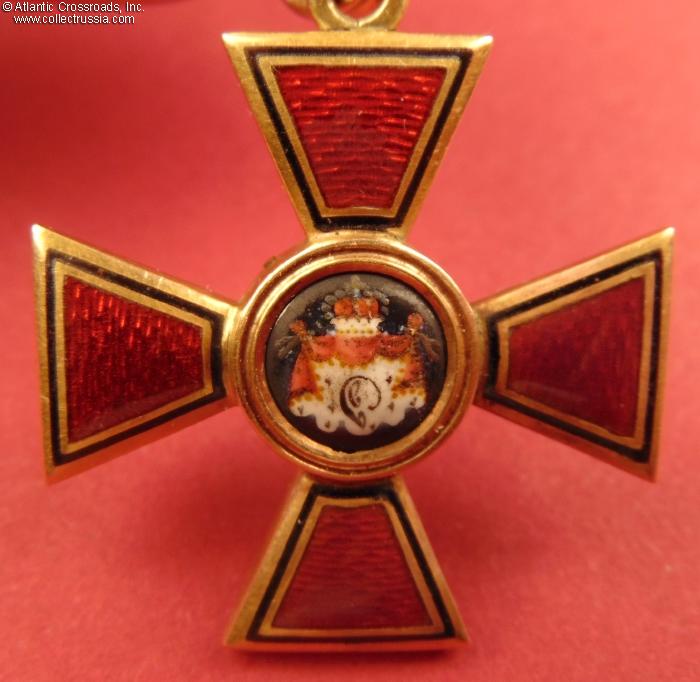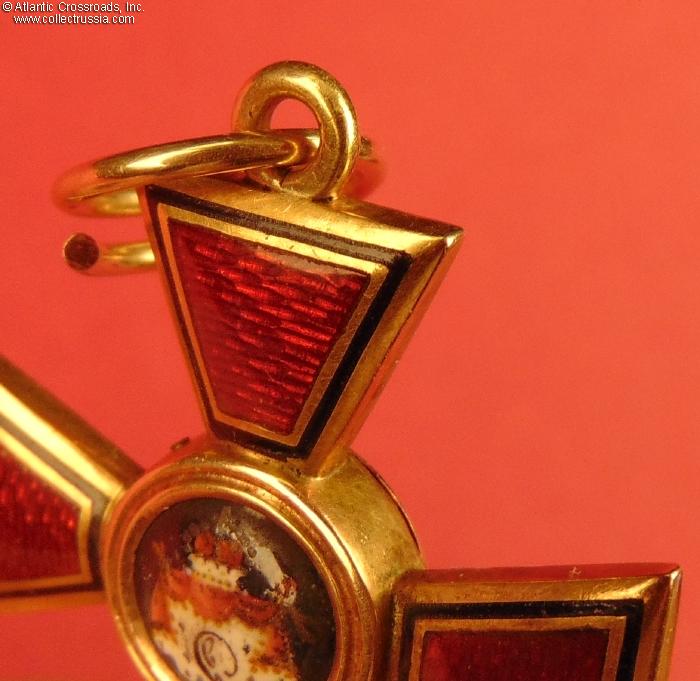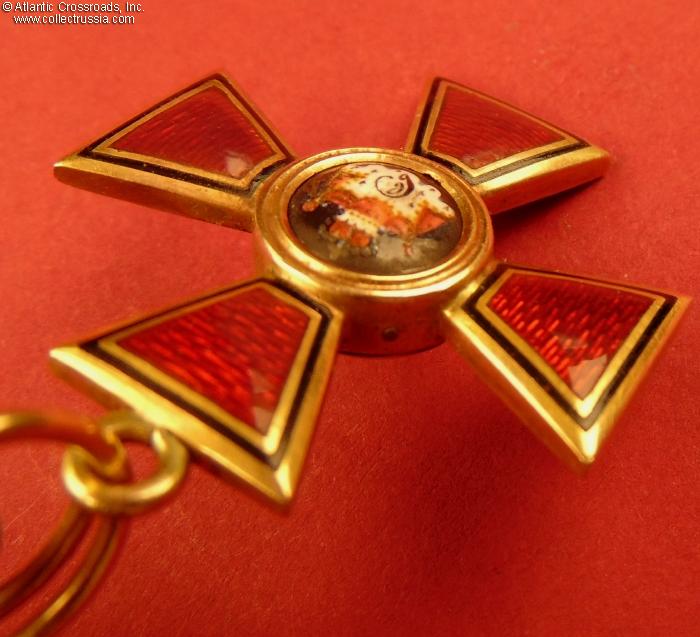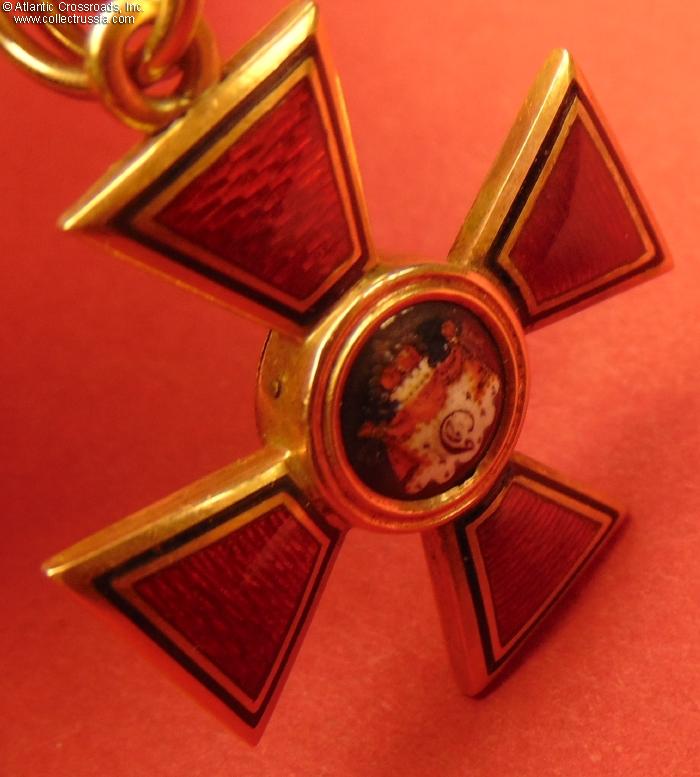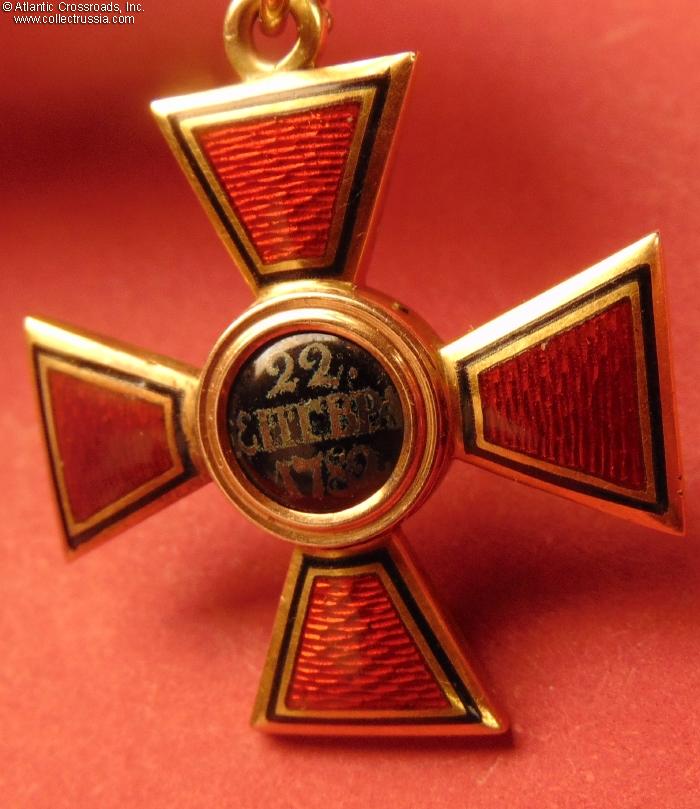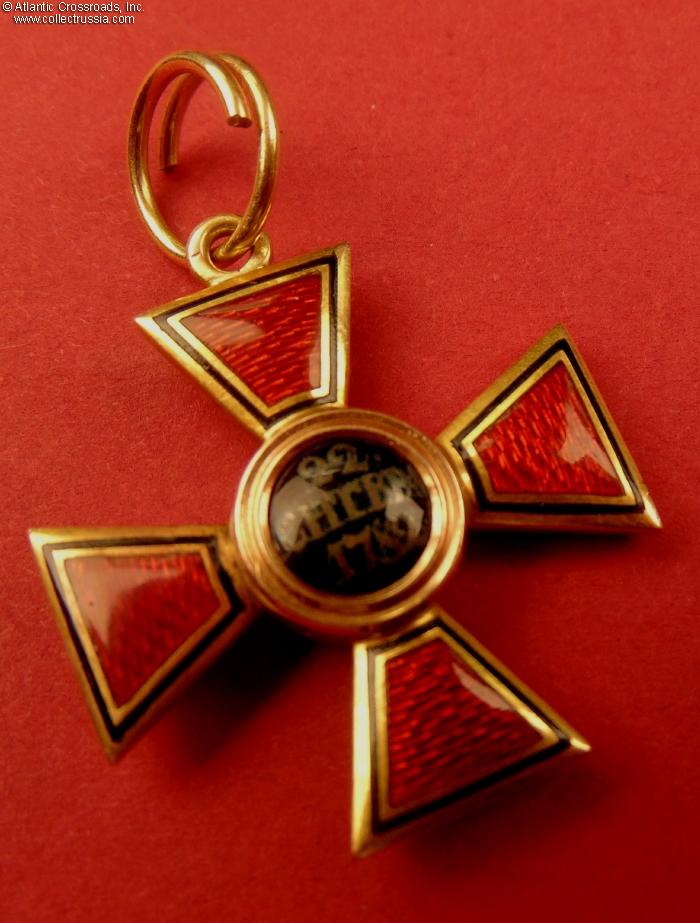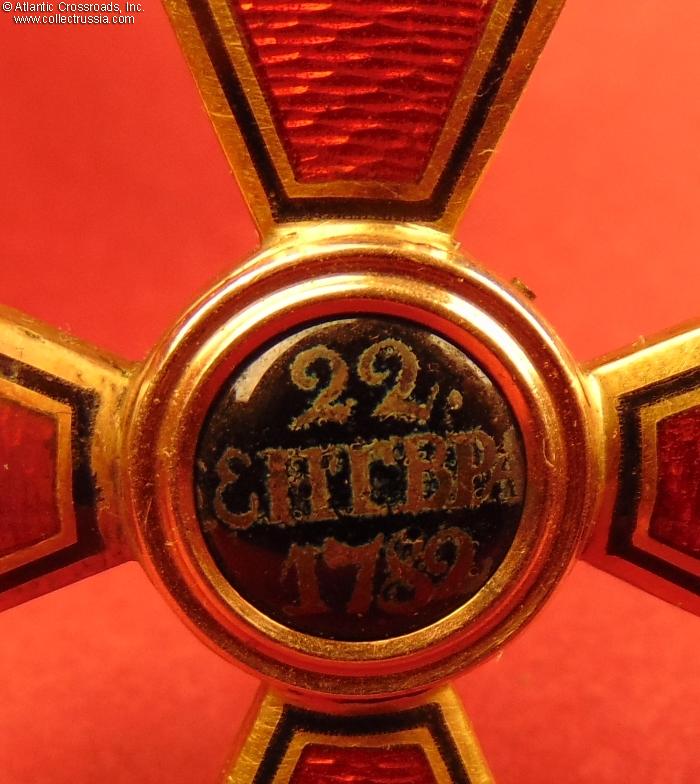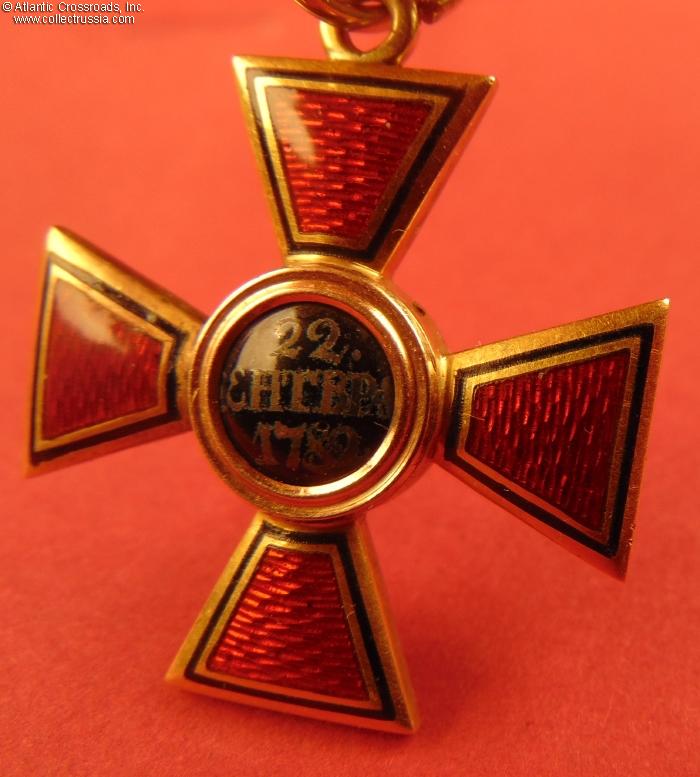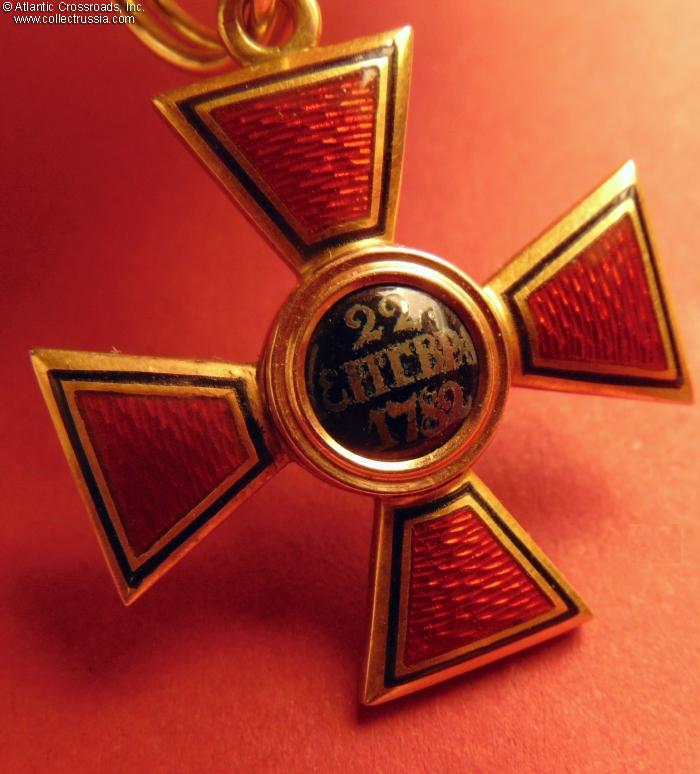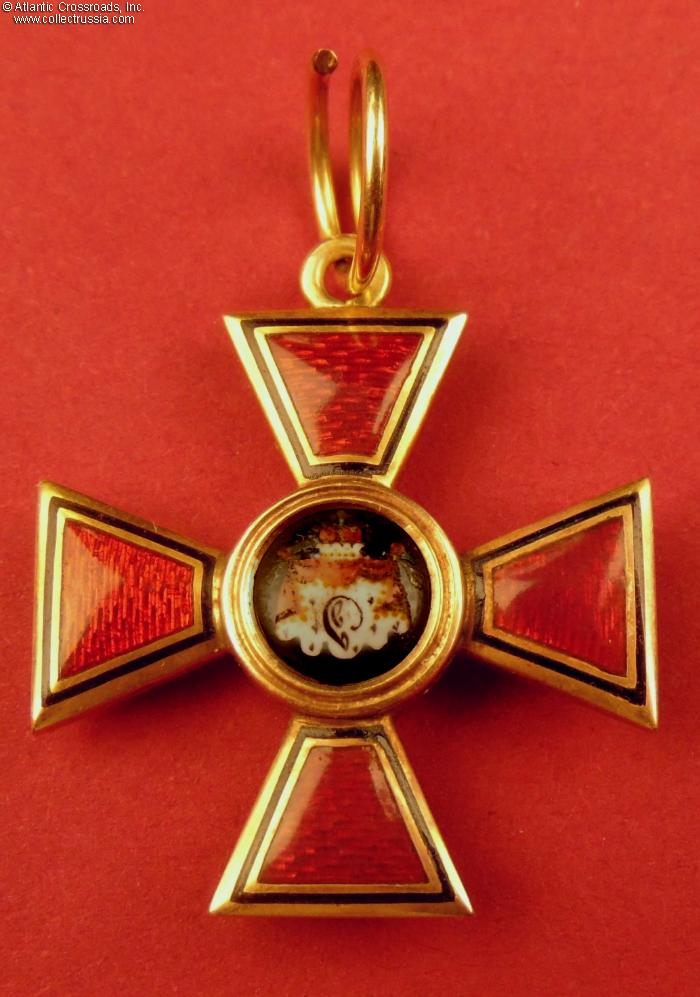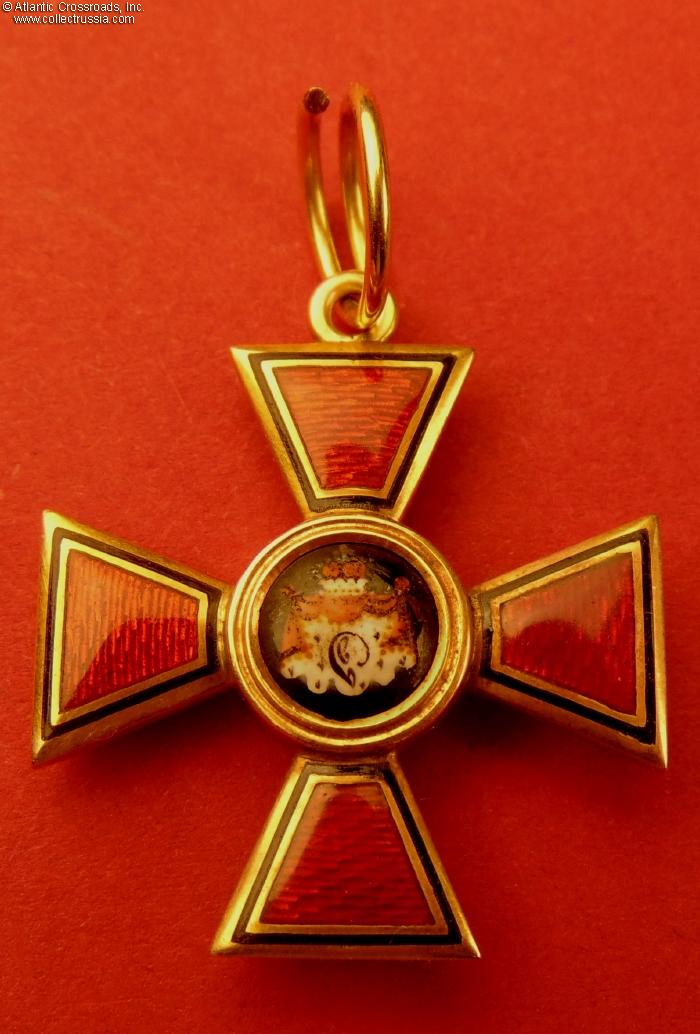
Order of St. Vladimir, 4th Class Breast Badge, circa 1810s-1820s
In gold and enamels; measures 35.1 mm in height incl. eyelet, 30.9 mm in width; weighs 5.6 g not including the jump ring. The center medallion is characteristically large, measuring approx. 12.1 - 12.2 mm wide, the most obvious distinguishing feature of the issues from the Napoleonic Wars era. The overall quality is also very characteristic of its time, in particular the beautiful orange-red translucent enamel on the arms with "exaggerated" guilloche pattern underneath as well as the style of the inscription on the reverse.
In fine condition. The enamel has been
In gold and enamels; measures 35.1 mm in height incl. eyelet, 30.9 mm in width; weighs 5.6 g not including the jump ring. The center medallion is characteristically large, measuring approx. 12.1 - 12.2 mm wide, the most obvious distinguishing feature of the issues from the Napoleonic Wars era. The overall quality is also very characteristic of its time, in particular the beautiful orange-red translucent enamel on the arms with "exaggerated" guilloche pattern underneath as well as the style of the inscription on the reverse.
In fine condition. The enamel has been repaired on the right and lower arms of the cross on the obverse, and on the left arm on the reverse. The repair was done in a professional manner with real enamel (rather than "cold" enamel or epoxy based-compound as is typically the case) and therefore it is not easily noticeable and won't even glow under a "black" UV light; the replacement is evident only at a very close inspection because it slightly darker and less translucent than the original. To reiterate, the difference is very difficult to notice. The rest of the enamel is original, including that on both sides of the center medallion, and undamaged, showing a beautiful luster. As is universally the case with Russian decorations produced before the second quarter of the XIX Century, there are no hallmarks or maker marks. The unmarked jump ring weighing 0.6 g appears to be in solid gold (has not been tested for gold content) and is presumed to be of the period.
This rare piece was probably issued within the first few years after the Patriotic War of 1812 and there is every chance that it originally
belonged to a military officer, a veteran of the Napoleonic Wars. At the time, there was no distinction in the appearance of military vs
civilian division of the Russian orders other than the bow added to the ribbon: the swords for military decorations appeared only much later,
in 1855.
$3,150.00 Add to cart

